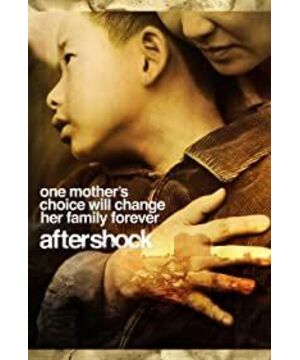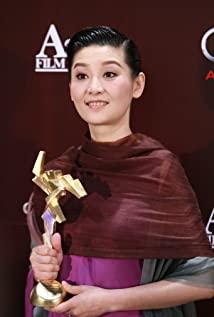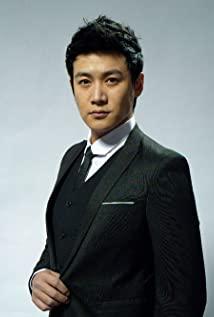Before watching the movie, I was a little conflicted. I didn’t really want to watch such tear-jerking traumatic films, because I was afraid that I would not be able to withstand this kind of psychological shock. (That's why I haven't watched Ocean Paradise until now). But until the end of the film, I, such a sentimental person, did not shed a single tear. Although Xu Fan knelt down to Zhang Jingchu and apologized heartily, my tears were about to fall out, but they still did not overflow. But I still think it's a good movie.
When I walked out of the theater, I chatted with my friends about the feelings in the movie, but I couldn't think of any highlights. But I still think it's a successful movie, and it's a movie worth watching. This is also a milestone and a vane in the history of Chinese film development.
I have always admired Feng Xiaogang and his films. As a director he is a successful film director. He is not an artist, nor does he take movies as art. He has always treated movies as movies, so we can understand the movies he made, so he is a movie director. A friend of mine who studied filmmaking said that movies are industry. The hallmark of industrialization is mass production. So we see Hollywood made. We were amazed at the stunning visual effects of their special effects. These are all derived from advanced technology and standardized operating procedures. Movies are not a matter of one person, and it is not something that can be supported by a director and a few actors. The movie's success is based on a complex set of operational promotion sales. The development of the film industry also depends on more than art and propaganda. Its progress is an industrialized development process. Fortunately, we have seen the development of Chinese films. We have seen Feng Xiaogang driving the development of China's film industry. From the initial friendly small production to step-by-step commercialization. This is the inevitable process of development and the transformation of results.
Not to mention the brilliance of his early works, his attempts and breakthroughs in movies in recent years are all highly developed and internationalized. Only one "Assembly" fully reflects the progress and possibility of the film. Before this, there has not been or has not been paid attention to a domestic film about war reflection. Not to mention how much he copied and copied from the European and American markets, at least he was a successful experiment. At least the possibility of this breakthrough is being made. This is the healthy development of an industry. And the same kind of pioneers we can't see the second person. Zhang Yimou seems to have reached the end of art. He smashed his own brand with "Three Guns". Jia Zhangke insists on art to the end, and does not follow the Chinese way but only wins foreign awards. I haven't read Jiang Wen's film anyway. Zhang Yang still maintains his hypocritical style in the 1980s. ... At least Feng Xiaogang has been working hard and breaking through.
As a human being, he is a straightforward man of temperament. He was always telling the truth, without the hypocritical conceit of an artist or the sheer utilitarianism of a businessman. I think he has managed to make films with artistic connotations in the way of commercial films.
Ha~ I really can't figure out those people who walk into the movie theater with dissatisfaction and serious attitude towards the director, and even more can't understand those people who only have comments in their minds but sit in the movie theater. I don't know why they went to the cinema. Don't you buy a ticket just to watch a movie? Then sit here and watch the movie shown here. Watch him completely. Forget your prejudice against him. Then go to judge it. Whether something is good or bad, it is not someone who says it is good or bad, it is good or bad, but you should feel whether it is good or bad. To be honest, I really don’t think the placement of advertisements is too much, I think it is quite natural. Compared with Du Lala, this is equivalent to no advertisements.
Of course, if this film is compared with Hollywood blockbusters or other similar themes made abroad, there is still a big gap. The plot is too simple, the characters are not full enough, and the sensationalism is not enough. But at least people evoke thoughts on earthquakes. Let us see the changes in the lives of those who have experienced earthquakes. It can also be regarded as an innovation of the main theme movie - a friend said "the main theme can shock the car".
Lastly, let's talk about the story. In the face of disaster, people are really insignificant. But after the disaster, life has to go on day by day. Problems that were originally existing or secular or utilitarian still exist. Those who live in the moment and know how to let go can adapt, while those who live in memory can never get out of themselves. Disasters don't solve problems, they don't create problems, because we've always had problems here, and they'll always be there. It's just how fate plays with you, and how do you deal with it. Ha~ Everyone in the movie was moved and cried. After the movie, there was no trace of their chatting and laughing.
Ha ha. Let Feng Xiaogang go, the movie will look good.
View more about Aftershock reviews











